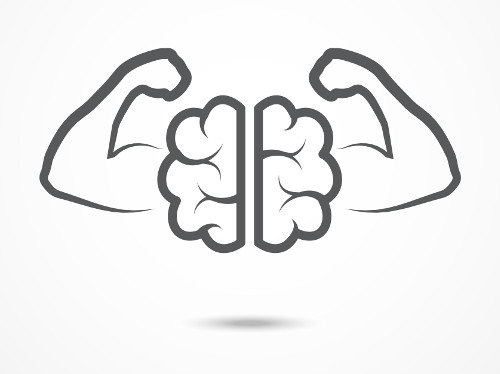We can significantly improve the likelihood of success if we understand and accept some things about behaviour change.
There’s a wide range of research on change, the funniest of which comes from researchers at Stanford University, who looked at 4 of the most popular weight loss programmes in America to see which ones work and which don’t. They found that
- All these programmes worked.
- If people followed them.
- But people hardly ever did.
Most of us fail on the road to change because we do a lot of research, brainstorming and redesigning, but just don’t do it with enough persistence. To really achieve a goal, we need to remind ourselves from time to time. Coming up with ideas is by no means the hardest part of the job.
To make a difference at work or in your life, you need two things: intelligence and self-control. Scientists haven’t yet figured out how to give people extra intelligence, but they have figured out how to develop self-control. Intelligence is obviously an advantage, but the ability to exercise self-control plays an even bigger role in whether we carry out what we set out to do.
Researchers have actually concluded two important things about willpower:
- We have a finite amount of willpower, which is depleted as we use it.
- We have a single “battery” that we are constantly consuming as we try to resist anything. When we are dieting, working, exercising or being kind, we use the same battery.
Imagine you’ve had a good night’s sleep and wake up fresh in the morning with a nearly full battery. As you leave the room you step on your child’s dismantled Lego, then can barely wake him up and have to beg to get dressed. You wonder what outfit to wear today. You drive off, there’s a traffic jam and a car is honking in the inside lane instead of letting you go. You hear bad news on the radio on the road. You arrive at work, 20 unread emails waiting and your first meeting starts in 15 minutes. You might get offended by a few people during the day, you have to complete some tasks that require a lot of attention. You head home, stop off at the grocery store to make sure the family doesn’t go hungry that very night. So when you get home, you wrap up a bottle of Nutella without question.
There is hardly anything during the day that will drain your battery in a spectacular way. You could say that most of them are sub-threshold stimuli, i.e. insignificant in themselves, but when added together they do serious damage to our willpower.
These days, there are more temptations than ever before, making it harder and harder to resist. W. Hoffmann’s research team found that people spend 1/5 of their waking time resisting temptations. To put it another way, if you are sitting in a meeting with 5 people, one of them is probably using their willpower to resist a temptation.
Our body may be in the office, but there are many other things fighting for our attention minute by minute (Facebook, phone ringing, funny videos, etc.) You might think that we easily resist, for example, stealing or spending money. Maybe, but we are far from being that good at resisting eating, drinking, watching TV or surfing the net.
We like to think that we control our thoughts, but we don’t. At best, we can have some influence, but not much. Wenger has proven this in several studies with clever tricks, for example when he manipulated choices with visual effects.
Wenger also pointed out that tasks that require a lot of concentration and effort drain our batteries. In fact, there is a hidden link between seemingly unrelated events: for example, resisting dessert after lunch can sap your willpower to compliment your colleague on his new outfit later. When we try to resist a temptation, we feel the urge much stronger when our resistance is lower. And there’s another twist: when our willpower is reduced or depleted, cravings become much stronger. For example, if events come more frequently that we have to resist, we find them more difficult to say no.
Baumesiter noted that the number of decisions we make each day also affects our willpower, as decisions also drain our batteries. For example, if you’ve had a hard day, don’t go to the mall because you’ll leave a lot of money there. But the reverse can also be true, after visiting the clothes shops (when we have made a lot of yes/no decisions) we will give up sooner to go to the gym.
The strange thing is that if our work requires a lot of decisions, we will be less and less able to make good decisions because our willpower will be constantly diminished. We will put off decisions or opt for the easiest, least risky one. We are more inclined to emphasise one dimension to the decision: take the cheapest or take the best quality. We tend to choose the preferred option, regardless of how rational it is.
Unsurprisingly, poor diet also reduces our willpower. The relationship between sugar (glucose) and willpower has been studied by several research groups; in summary, if there is no glucose, there is no willpower. Because our bodies get energy from glucose, we need sufficient blood sugar to have a high willpower.
In summary, what reduces willpower?
- We are trying to avoid something.
- We cannot get rid of something.
- Emotional control. (This is particularly difficult because we can’t force ourselves to be happy.)
- Impulse control (e.g. alcohol, chocolate, tobacco).
- Performance control: focusing on the task at hand.
Act2Manage Application
An interactive, gamification-based, practice-oriented leadership development application that provides immediate help and enables follow-up to the most common dilemmas.







